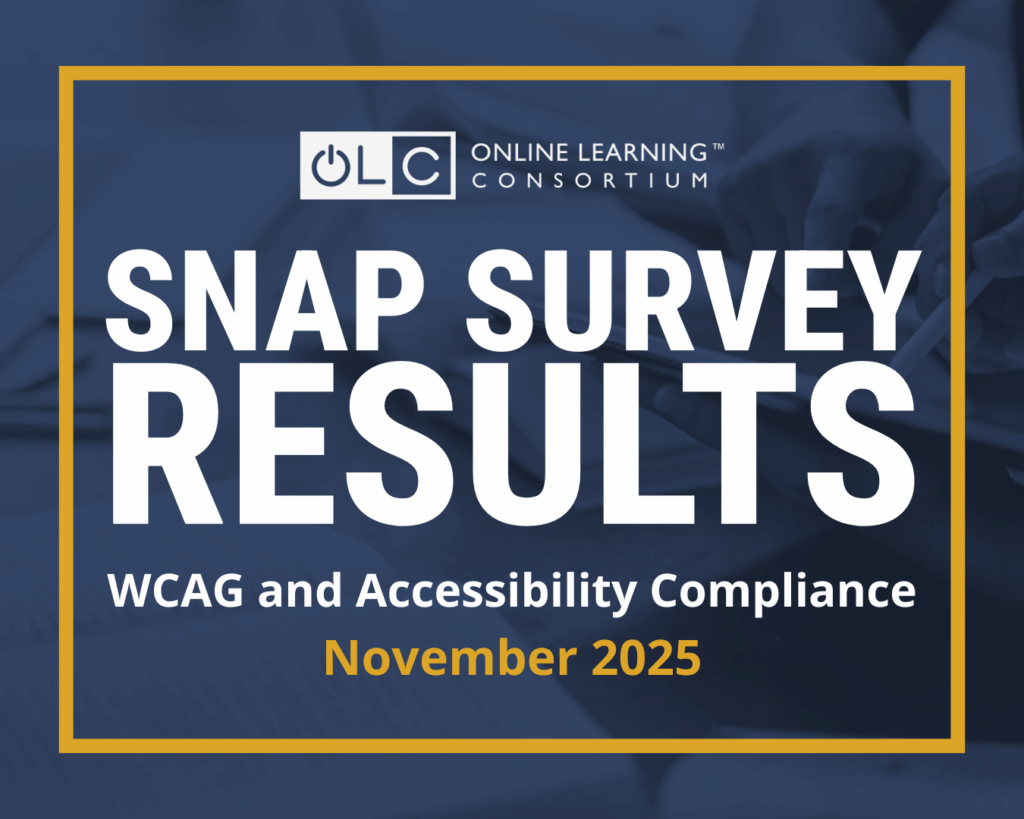An EvolvEX Summit Panel Discussion Experience and Reflections
The EvolvEX Summit, hosted by the University of Economics – Varna, brought together global experts to explore AI-driven transformation across industries, with a particular focus on education. I was fortunate enough to be a part of the panel titled “AI in Education: Teaching Transformation, Educator Skill Development, Ethical Considerations,” moderated by Dr. Plamen Miltenoff, which served as a model of inclusive collaboration and hybrid delivery despite minor logistical challenges typical of inaugural events. The panel featured educational professionals from K–12 and higher education, representing diverse perspectives from Bulgaria, Romania, Ireland, Türkiye, and the United States. This diversity enabled a broad exploration of AI’s role in education, fostering dialogue with an audience of students, faculty, and business community representatives while facilitating networking among panelists. The following questions, democratically selected by the panel from a broader list, guided the discussion, aiming to spark conversation and address timely issues in education.
In this article, I will synthesize the panel’s dialogue, integrate post-panel reflections from panelist Tzvetan Tzvetanski, and offer a cohesive perspective on the opportunities, challenges, and ethical considerations of AI in education. My fellow panel members contributed their thoughts and feedback which have been integrated into the summary as well.
Transition Preparedness: Bridging K–12 and Higher Education
Question: How does exposure to AI in K–12 curricula prepare students for higher education’s expectations, and where might gaps persist?
AI integration in K–12 education holds immense promise for preparing students for higher education by fostering digital fluency, critical thinking, and ethical awareness—skills essential for academic success. Peter Tiernan and I highlighted that thoughtful AI use can deepen student engagement with complex tasks and digital tools. However, challenges persist. K–12 systems often adopt AI faster than higher education, creating mismatches in expectations and support. Tiernan and Mustafa Sever emphasized the need for structured, age-appropriate AI curricula to ensure students develop the depth required for college-level work. Sever and Tzvetan Tzvetanski pointed to systemic barriers, including unprepared educators, rigid curricula, and a lack of cohesive strategy. Tzvetanski, reflecting on the broader pedagogical landscape, noted that AI’s disruption extends beyond tools to the very rituals of education—production, presentation, and evaluation. When students accustomed to AI-generated outputs enter universities where AI is restricted, they face a cultural shock that undermines their preparation. Tzvetanski advocated for harmonized expectations, proposing five pillars for a coherent transition: AI literacy, ethical awareness, critical confidence, a shared pedagogical language, and teacher facilitation. While Tzvetanski views AI readiness as secondary to broader educational reform, all panelists underscored the need for intentional design, equitable access, and alignment between K–12 and higher education to prevent fragmented implementation and institutional inertia.
Future Collaboration: Shaping Policies for Lifelong Learning
Question: What long-term trends do you foresee in AI’s role across education, and how can K–12 and higher education collaborate to shape policies that benefit lifelong learners?
AI’s transformative role in education is inevitable, yet its trajectory remains contested. Peter Tiernan and I called for proactive collaboration between K–12 and higher education to establish ethical, scaffolded AI literacy through shared standards and joint task forces. They cautioned against unregulated adoption, drawing parallels to past technological missteps. Tzvetan Tzvetanski, however, questioned the efficacy of institutional collaboration, arguing that without deeper systemic change, such efforts risk being symbolic. He described AI as a philosophical rupture, challenging the ritualistic core of education—homework, essays, and exams—and necessitating new rituals that integrate AI as a participant rather than a shortcut. Mustafa Sever and Bogdan Vătavu offered a broader critique, noting the private sector’s growing influence and the rise of decentralized learning models like micro-credentials, which could sideline traditional institutions. Vätavu advocated for democratic oversight to counter corporate control. These perspectives highlight a central tension: whether institutions can remain stewards of educational innovation or if new models will dominate. The panel agreed that ensuring AI promotes equity, public good, and lifelong learning requires cross-sector dialogue and policies grounded in shared values.
Ethical Considerations: Establishing Guardrails
Question: What ethical dilemmas emerge when using AI tools (e.g., bias, privacy), and how can K–12 and higher education collaboratively establish guardrails?
AI in education raises complex ethical challenges, including algorithmic bias, data privacy, academic integrity, and human agency. The panel unanimously stressed the need for robust ethical frameworks and cross-sector collaboration. Tzvetan Tzvetanski and I emphasized clear ethical guidelines and AI literacy to help students and educators understand AI’s limitations and preserve student agency. Tzvetanski likened AI to a Socratic colleague, prompting critical thinking but requiring careful oversight to avoid undermining pedagogical trust. Peter Tiernan raised additional concerns, such as environmental impact and misuse in decision-making, while Mustafa Sever warned that AI reflects its creators’ biases, necessitating institutional oversight from universities. Bogdan Vătavu focused on preserving student motivation, advocating for assessments that blend human and AI input to foster creativity and critical thinking. To address these dilemmas, Tzvetanski proposed reimagining educational rituals, e.g., analyzing AI outputs instead of writing homework or debating AI-generated arguments—to integrate AI meaningfully. Collectively, the panel called for a unified approach to AI ethics, ensuring innovation is guided by responsibility, equitable, equity, and human-centered learning.
Higher Education Support Systems: Adapting to AI-Driven Learners
Question: How should higher education institutions adapt their teaching and advising to support students already accustomed to AI-driven learning tools?
As AI becomes integral to K–12 learning, higher education must evolve or risk becoming irrelevant. Peter Tiernan and I advocated for proactive strategies, such as fostering campus-wide dialogue to demystify AI and rethinking instructional design to leverage AI’s capabilities. Tiernan emphasized structured support to build ethical AI literacy while preserving core academic values. Mustafa Sever and Bogdan Vătavu noted institutional inertia and faculty resistance, observing that students often lead in AI adoption. They urged embracing AI as a tool to enhance human skills. Tzvetan Tzvetanski took a cautious approach, emphasizing broader pedagogical and ethical reforms over rapid AI integration. He highlighted the crisis of pedagogical trust triggered by AI, where traditional evaluations assessment methods lose legitimacy when students bypass effort or originality. New rituals, such as presenting interactions with AI or debating its outputs, could bridge this gap. The panel collectively called for a cultural shift in higher education—one that prioritizes openness, collaboration, and a focus on the human aspects of learning to guide students in using AI thoughtfully and creatively.
Personalized Learning: Balancing Automation and Mentorship
Question: How can generative AI enable personalized learning experiences, and what challenges arise in balancing automation with human mentorship?
Generative AI offers transformative potential for personalized learning, delivering tailored content and adaptive support. However, this raises critical pedagogical and ethical questions. Tzvetan Tzvetanski and Mustafa Sever acknowledged AI’s capabilities but cautioned that its integration demands a rethinking of educational models. Sever warned that as AI assumes instructional roles, educators risk losing authority, underscoring the need to preserve mentorship and emotional support. Peter Tiernan and I likened AI to a helpful assistant, emphasizing the importance of human oversight to ensure ethical and meaningful learning. Bogdan Vätavu cautioned that AI’s instant answers could erode students’ curiosity and discovery skills. Tzvetanski proposed using AI as a Socratic tool to prompt deeper thinking, such as by having students analyze AI-generated proposals rather than replacing traditional tasks. The panel highlighted the need to balance automation with human connection, advocating for thoughtful design, ethical safeguards, and a commitment to the relational aspects of education to ensure AI deepens, rather than diminishes, the learning experience.
Conclusion: A New Paradigm for Education
The EvolvEX Summit panel discussion illuminated AI’s multifaceted impact on education, revealing both its potential and its challenges. Tzvetan Tzvetanski likened AI as a “brilliant but annoying colleague,” emphasizing its Socratic value in promoting critical thinking rather than replacing it. He argued that generative AI marks the end of an educational paradigm, challenging the ritualistic foundations of pedagogy—homework, essays, and evaluations—and necessitating new rituals that position AI as a partner in learning. Bogdan Vätavu warned against the “AI slop industry”—low-quality, mass-produced content—and urged educators to maintain intellectual agency, drawing on metaphors like Star Trek for thoughtful human-AI collaboration. The panel underscored a shared commitment to intentional, human-centered AI integration guided by educational values. As AI reshapes learning, cross-sector dialogue, ethical design, and a focus on AI literacy, ethical awareness, critical confidence, a shared pedagogical language, and teacher facilitation will be essential to ensure its responsible and inclusive use. Continued collaboration between K–12, higher education, and higher education will be critical to shaping an equitable, innovative, and human-focused AI-driven future for education.
Panelists:
- Professor Galin Tzokov, PhD, Plovdiv University (Bulgaria)
- Tzvetan Tzvetanski, Center for Educational Initiatives (Bulgaria)
- Associate Professor Bogdan Vatavu, PhD, Lucian Blaga University of Sibiu (Romania)
- Assistant Professor Silviu Bors, PhD, Romance Studies Department, Faculty of Letters and Arts, Lucian Blaga University of Sibiu (Romania)
- Associate Professor Peter Tiernan, PhD, Institute of Education, Dublin City University (Ireland)
- Carrie Lewis Miller, PhD, Senior Researcher, Online Learning Consortium (USA)
- Professor Mustafa Sever, Ankara University, Faculty of Educational Sciences (Turkey)
 As senior researcher at OLC, Carrie designs, conducts and manages the portfolio of research projects that align with the mission, vision, and goals of the Online Learning Consortium. She brings with her over 15 years of experience as an online educator and instructional designer with a passion for research. She has peer-reviewed publications covering a variety of topics such as open educational resources, online course best practices, and game-based learning. In addition to a strong background in higher education teaching and instructional design, Carrie brings with her extensive experience in customer service and small business management. She holds a PhD in Educational Technology from Arizona State University, an MS in French from Minnesota State University, and BA in French from Arizona State University.
As senior researcher at OLC, Carrie designs, conducts and manages the portfolio of research projects that align with the mission, vision, and goals of the Online Learning Consortium. She brings with her over 15 years of experience as an online educator and instructional designer with a passion for research. She has peer-reviewed publications covering a variety of topics such as open educational resources, online course best practices, and game-based learning. In addition to a strong background in higher education teaching and instructional design, Carrie brings with her extensive experience in customer service and small business management. She holds a PhD in Educational Technology from Arizona State University, an MS in French from Minnesota State University, and BA in French from Arizona State University.





